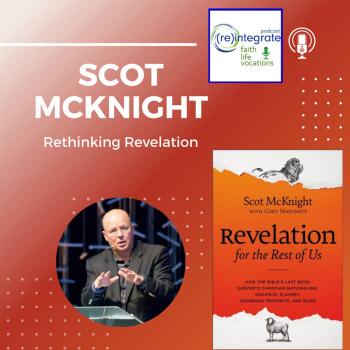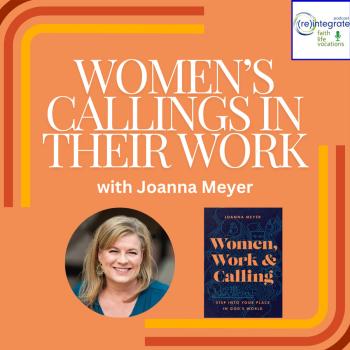Imagine, if you will, a leader telling his followers who are living within the enemy’s walls to help them to flourish. Not to undermine them, not to resist them with force, not to plot an overthrow. Imagine that the leader actually wants to subvert the evil enemy with blessings instead of curses. That would be unprecedented.
Unless, of course, God had not already told his people to do just that.
God, through the prophet Jeremiah, not only tells those in the Babylonian exile to live holy lives, he also gives them a calling as they live in the midst of this oppressive empire.
“Seek the welfare of the city where I have sent you into exile, and pray to the LORD on its behalf, for in its welfare you will find your welfare.” (Jeremiah 29:7)
![colossians remixed[2]](https://www.re-integrate.org/wp-content/uploads/2013/05/colossians-remixed2.png) As Brian Walsh and Sylvia Keesmaat wrote,
As Brian Walsh and Sylvia Keesmaat wrote,
“This call is profoundly subversive—right up there with ‘pray for those who persecute you’ (Matt. 5:44)—precisely because it is completely antithetical to all the empire could ask or imagine. The empire wants nothing more than to break the spirit and will of the foreigners in its midst. But with the call to seek the welfare of the empire, the exiles are living out of the vision and hope of Genesis, for the good of the empire itself. This is a call to be God’s people by bringing shalom and healing in places of brokenness and despair. And what could be more broken and more in need of healing than the place of oppression, the heart of the empire?” (Colossians Remixed: Subverting the Empire (InterVarsity Press, 2004), p. 68)
We who are in the Kingdom of God are called to bear witness to that kingdom within the broken world that we reside by our subversive actions for the common good. This is why we so desperately need to reintegrate our faith with our work. It is through our vocations that we have the most opportunity to offer shalom and healing.
In Paul’s letter to Titus, he tells us that there is a reason Jesus Christ redeems people.
“Jesus Christ…gave himself for us to redeem us from all lawlessness and to purify for himself a people for his own possession who are zealous for good works.” (Titus 2:14)
In his first letter, Peter tells us that what we do is the ultimate witness that Christ is Lord. As the Kingdom of God advances over the dark twisted ways of the fallen world, people will see that God is indeed good. It is then, and only then, that they will ask questions about why we do the things we do.
“Who is going to harm you if you are eager to do good? But even if you should suffer for what is right, you are blessed. ‘Do not fear their threats; do not be frightened.’ But in your hearts revere Christ as Lord. Always be prepared to give an answer to everyone who asks you to give the reason for the hope that you have. But do this with gentleness and respect, keeping a clear conscience, so that those who speak maliciously against your good behavior in Christ may be ashamed of their slander.” (1 Peter 3:13-16)
Doing what is right and good is simply a practical way of stating the “Great Commandment” of Mark 12:28-31 and Matthew 22:34–40, where Jesus tells us that we must love the Lord our God and love our neighbors. How can we work for the common good in our everyday work?
How would doing good subvert the evil in the world today?












